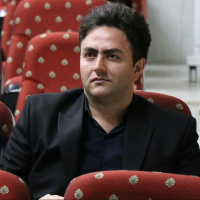Comparative study of educational consequences of patriotism in Shahnameh and Islamic teachings
The aim of the research is to compare the educational consequences of patriotism and its components in Ferdowsi's Shahnameh and Islamic teachings.
This research was done with a qualitative method and document analysis type.
In the findings section, first with the topic of patriotism, we will examine some components in Ferdowsi's Shahnameh, including; Love for the homeland, paying attention to the fate of the homeland and being sensitive to it, defending the homeland, creating a sense of patriotism and pride for the homeland, making sacrifices for the sake of the homeland, creating a positive feeling towards the homeland and the freedom of the people of the homeland. Also, in the section of Islamic teachings, components such as the security of homeland, city and life, defense of the homeland, sensitivity to the land, the inherent value of the homeland, patriotism, the importance of security and prosperity in the homeland were examined, and at the end, the differences and adaptations were examined. The similarities between the view of the Shahnameh and Islamic teachings were discussed in connection with the discussion of patriotism.
As a result, inspired by the findings obtained, by introducing the new generation to their national and religious values, the best solution can be presented to preserve the zeal and honor of the homeland, and to protect the soil and the homeland in the new generation; Therefore, one of the goals of this research is to provide theoretical content for use in elementary and secondary school textbooks.
-
A phenomenological study of sports development in schools and society of Ardabil city from the perspective of teachers and professionals
*, Mohammad Azimi, Morteza Golshani Gahraz, Zahra Khademi Astaneh
Journal of Research in Sport Management and Marketing, Summer 2024 -
A phenomenological study of the challenges governing the issue of managing emotions in schools and providing solutions
, Morteza Golshani Gehraz *, Nasim Rezaei
Journal of Educational Psychology Studies,


